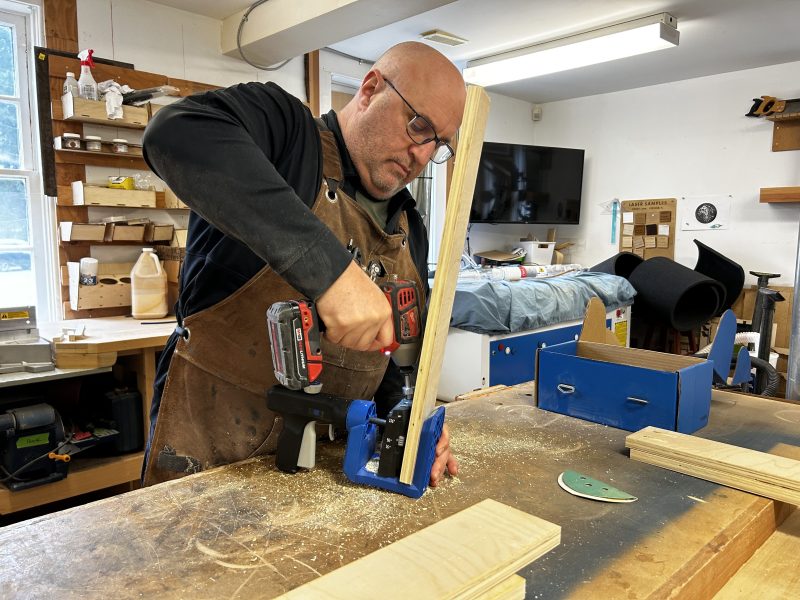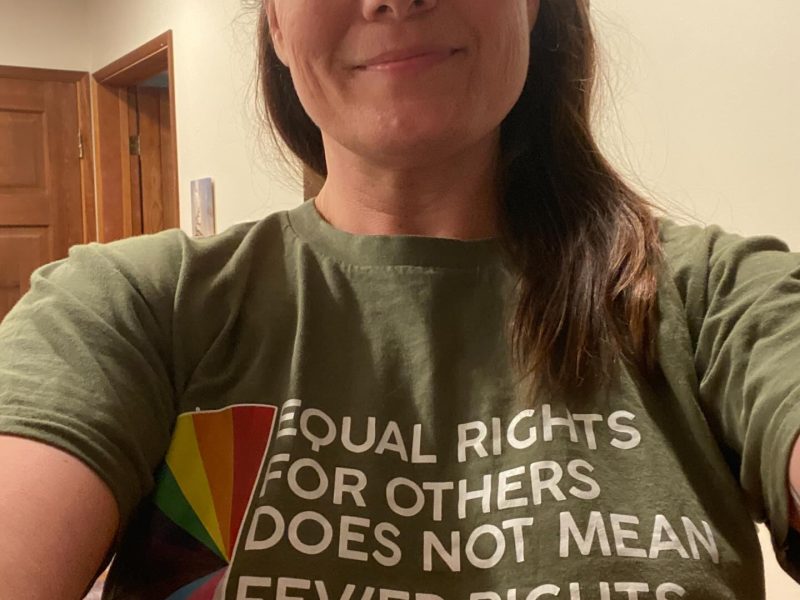
This article is from The Discourse’s Cowichan Valley newsletter. Sign up to get it in your inbox.
Late last week I spoke with Dr. Graham Blackburn, a local family doctor who is also the division head for family medicine at the Cowichan District Hospital. It’s been a challenge to get good, local information through this crisis. So, when we finally connected, I asked Blackburn questions I’ve heard from you as well as my own curiosities about the healthcare response to COVID in Cowichan.
Here’s a condensed version of our conversation.
How is it going at the hospital?
“I think, by and large, people are doing well. Our hospital has got a very tight knit community that works there, staff are very supportive of each other. Everyone is doing their best to deal with some very different workflows, and physical distancing, and personal protective equipment.”
“There’s a significant amount of anxiety or fear about what it could mean if we saw a lot of people with COVID coming through our hospital, but so far, we’ve been really just preparing for that. It hasn’t actually happened locally. And so, I think the more time we have to get prepared, the more that anxiety goes down.”
“It’s a stressful time, but I think it’s a time of growth. Our system is improving, which I’m really grateful for. We’re not overwhelmed by COVID at this point. So we’re getting some benefits out of all of the work we’re doing to prepare for it.”
Blackburn added that at the Cowichan District Hospital right now COVID-19 assessment and testing is taking place in trailers and tents outside of the building. Patients who are admitted to the hospital are confined to one part of the building until their test results come back. If they test positive for COVID and require ongoing hospital care, they will be transferred to Royal Jubilee Hospital in Victoria, which has been designated as one of B.C.’s primary COVID care sites. There were, as of Apr. 20, just six hospitalized COVID patients across Island Health.
People shouldn’t be afraid to seek hospital care or any health care at this time, he said. In fact, by dealing with health issues as they come up, you help keep yourself and our communities healthy. Many issues can be addressed virtually. “We really want people to seek the care they need. Your doctor is open. Doctors aren’t going on holidays right now, because you can’t. We’re around.”
I’m not sure what symptoms I should interpret as potential COVID symptoms. What should I do?
If you’re worried about potential COVID symptoms, even if they’re mild, get a professional assessment, Blackburn stressed. Call your family doctor, call 811, use the online self-assessment or book an appointment at Cowichan’s virtual assessment clinic. “I think if a lay person is really not sure about their symptoms, they should ask for some advice.”
What can people do to support healthcare workers right now?
“What helps the most is for people to take care of themselves and to follow the directions of our provincial health officer. I really can’t state that enough. When you see people that are distancing and being conscientious, that makes a huge difference. Because that’s the part we all have to do to keep each other healthy.”
What else do you see in the community that makes you hopeful?
“I know there’s a ton of volunteer work being done right now to support people that have needs around food security, shelter, basic transportation and so on. And that’s really encouraging. I think as family doctors, we see that a lot of people suffer health consequences because they don’t have enough social support, or they struggle with poverty and food security and housing issues. And so, it encourages me, and I think most of my colleagues, when we see community action to support people.”
Do you think we’ll be able to carry that forward when this is no longer a crisis?
“I sure hope so. It’s a proven fact that the more we share and the more we take care of each other in our society, the happier and healthier we are. That’s been proven scientifically, and I think at times like this, we realize that being ultra-individualistic isn’t good for us. And so, I hope that others feel the benefits now, and that can endure, and we continue to pull together as a society, to look out for each other.”
Additional resources:
- B.C.’s online COVID self-assessment tool
- Cowichan Valley Division of Family Practice’s virtual COVID clinic
- COVID information from the BC Centre for Disease Control
- COVID information from Island Health
- Pathways Cowichan Valley can help connect you with medical, social and mental health services in your community.
- Here’s a list of virtual mental health supports available in B.C.
Do you have more questions? Send me an email, and I’ll do my best to answer them. [end]


